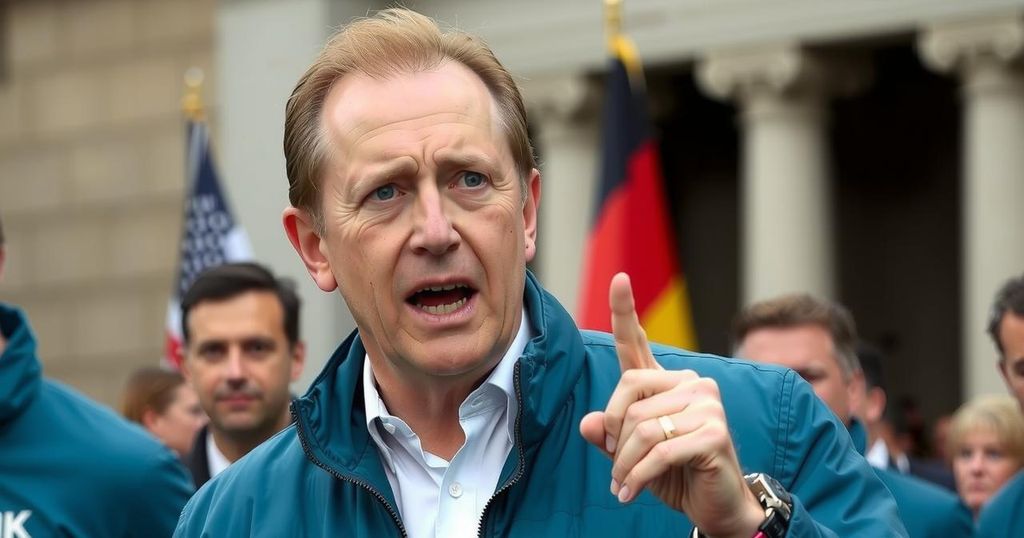Elon Musk’s Controversial Support for Germany’s AfD Party

Elon Musk has publicly endorsed the far-right AfD, claiming it is the “last spark of hope” for Germany amid economic fears. His op-ed sparked backlash and allegations of foreign interference in German politics. Musk’s claims regarding the AfD challenge its portrayal as extremist and raise questions about the influence of international figures on domestic affairs.
In a striking commentary published in the Welt am Sonntag, U.S. tech magnate Elon Musk has expressed unequivocal support for Germany’s far-right political party, the Alternative for Germany (AfD). He asserted that the AfD represents the “last spark of hope” for a Germany he perceives to be on the verge of “economic and cultural collapse,” claiming it alone can restore the German economy through a more restrictive immigration framework. Musk dismissed accusations of extremism against the party, referencing its leader’s same-sex relationship as a counterargument to such claims. Despite the backlash and resignations among the Welt editorial staff, Musk’s op-ed has reignited discussions about the influence of foreign individuals in domestic electoral politics. Criticism has also emerged from German political figures, equating Musk’s commentary to interference akin to Russian President Vladimir Putin’s behavior in influencing elections.
The growing prominence of the AfD in German politics coincides with rising concerns regarding immigration, economic stability, and national identity, factors that resonate within segments of the German populace. Elon Musk’s intervention, particularly as a renowned business figure, raises questions regarding the intersection of business and politics. Given Musk’s influence and the substantial economic stakes tied to his operations in Germany, his endorsement may serve to legitimize far-right narratives and ideologies within the mainstream political discourse of Germany.
In summary, Elon Musk’s public endorsement of the AfD has sparked significant controversy, drawing sharp criticism from various political leaders and media representatives in Germany. This incident underscores the ongoing debates surrounding foreign influence on domestic politics, as well as the implications such endorsements may have on the perception and viability of extremist parties within a democratic framework. As the political landscape in Germany evolves, the ramifications of Musk’s statements will likely be a focal point in upcoming electoral discussions.
Original Source: www.dw.com






